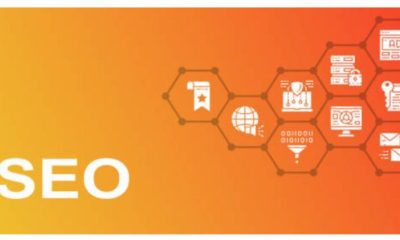Others
The Best Strategies for Learning a New Language Quickly

Are you ready to conquer a new language quickly and effectively? Learning a new language can be a daunting task, but with the right strategies, you can become fluent in no time. In this article, we will explore the best strategies for learning a new language quickly and efficiently. Whether you’re learning for personal growth, travel, or career advancement, these strategies will help you accelerate your language learning journey. From immersive experiences to utilizing technology, we will unveil the most effective methods to grasp a new language.
Why learning a new language is beneficial
Learning a new language offers a myriad of benefits. Firstly, it expands your horizons and allows you to connect with people from different cultures. Language is a gateway to understanding different perspectives and gaining a deeper appreciation for diversity. Additionally, being bilingual or multilingual can open up new career opportunities, especially in today’s globalized world. Employers value individuals who can communicate with international clients and navigate jpslot diverse work environments. Furthermore, studies have shown that learning a new language boosts cognitive abilities, improves memory, and enhances problem-solving skills. The benefits of language learning are far-reaching and can positively impact various aspects of your life.
The challenges of learning a new language

Learning a new language comes with its fair share of challenges. One of the biggest obstacles is overcoming the fear of making mistakes. Language learners often feel self-conscious about their pronunciation or grammar, which can hinder their progress. It’s important to remember that making mistakes is a natural part of the learning process and should be embraced. Another challenge is finding the time and motivation to practice consistently. Language learning requires dedication and perseverance, especially when progress seems slow. However, with the right strategies and mindset, these challenges can be overcome.
Setting goals for language learning
Setting clear and achievable goals is crucial for effective language learning. Begin by determining why you want to learn the language and what level of proficiency you aim to achieve. Do you want to be conversational, or do you aim for fluency? Once you have a clear goal in mind, break it down into smaller milestones. This will make your language learning journey more manageable and allow you to track your progress. Additionally, setting a timeline or schedule for achieving each milestone will provide structure and help you stay motivated.
Immersion as an effective language learning strategy
Immersing yourself in the language is one of the most effective strategies for learning a new language quickly. Surrounding yourself with native speakers exposes you to the language’s natural flow and nuances. If possible, consider traveling to a country where the language is spoken and immersing yourself in the local culture. This will provide you with constant exposure to the language and opportunities to practice in real-life situations. If traveling is not feasible, you can still create an immersive environment at home. Watch movies or TV shows in the target language, listen to podcasts or music, and try to engage with native speakers through language exchange platforms or online communities. The more you immerse yourself in the language, the faster you’ll progress.
The importance of consistent practice
Consistency is key when it comes to language learning. It’s better to practise for short durations every day than to have infrequent, lengthy study sessions. Consistent practice helps reinforce what you’ve learned and allows you to build upon your knowledge. Create a study routine that works for you and stick to it. Set aside dedicated time each day to practise listening, speaking, reading, and writing in the target language. This can include activities like listening to podcasts, reading books or articles, writing in a journal, or having conversations with native speakers. By making language learning a part of your daily routine, you’ll progress much faster.
Utilizing technology and language learning apps
Technology has revolutionized language learning, making it more accessible and engaging. Language learning apps like Duolingo, Babbel, and Memrise offer interactive lessons, vocabulary drills, and pronunciation exercises. These apps allow you to learn at your own pace and provide instant feedback, making your language learning journey more efficient. Online platforms also offer virtual tutors and language exchange partners, who can provide personalized guidance and conversation practice. Additionally, there are numerous websites and online resources that provide grammar explanations, vocabulary lists, and practice exercises. Embrace technology as a powerful tool in your language learning arsenal.
Finding a language exchange partner
Practicing with a language exchange partner is an excellent way to improve your speaking skills and gain cultural insights. Language exchange platforms connect language learners from around the world, allowing you to connect with native speakers who are learning your native language. This mutually beneficial arrangement allows you to practice speaking the target language while helping your partner with their language goals. Engaging in conversations with a language exchange partner not only improves your fluency but also exposes you to colloquial expressions and cultural nuances. It’s an opportunity to make new friends and learn from each other’s experiences.
Taking language classes or courses
Formal language classes or courses can provide structure and guidance in your language learning journey. Whether you prefer in-person classes or online courses, enrolling in a language program offers several advantages. Qualified instructors can explain complex grammar rules, provide personalized feedback, and offer valuable insights into the target language’s culture. Additionally, language classes often provide opportunities for group discussions and role-playing, allowing you to practice your speaking and listening skills in a supportive environment. Consider enrolling in a language class or course to complement your self-study efforts and accelerate your language learning progress.
Immerse yourself in the culture and media of the target language
Language and culture are intertwined, and immersing yourself in the culture of the target language can greatly enhance your language learning experience. Explore literature, films, music, and art from the countries where the language is spoken. This will expose you to different perspectives, enrich your vocabulary, and deepen your understanding of the language. Dive into the local cuisine, customs, and traditions to fully immerse yourself in the target culture. Additionally, attending cultural events or joining language-focused communities can provide opportunities to practice your language skills and connect with like-minded individuals. Embracing the culture of the target language will make your language learning journey more enjoyable and meaningful.
Tips for staying motivated and committed to language learning
Learning a new language is an exciting and rewarding journey, but it requires commitment and perseverance. To stay motivated, celebrate your progress, no matter how small. Keep track of your achievements and reflect on how far you’ve come. Find ways to make language learning enjoyable, such as incorporating your interests into your study routine or exploring topics that fascinate you in the target language. Surround yourself with a supportive community of fellow language learners who can provide encouragement and accountability. Finally, remember that language learning is a lifelong process, and it’s okay to make mistakes. Embrace the challenges, stay consistent, and enjoy the journey of becoming fluent in a new language.
-

 Business4 weeks ago
Business4 weeks agoEmpowering Seniors: Top Apps and Gadgets Enhancing Quality of Life
-

 Business4 weeks ago
Business4 weeks agoStep-by-Step Conveyancing Process Explained: A Detailed Walkthrough
-

 Business3 weeks ago
Business3 weeks agoWhite Label Link Building Services: Maximize Client Success and Agency Profits
-

 Business4 weeks ago
Business4 weeks agoBiophilic Design: Integrating Nature into the Workplace
-

 Technology4 weeks ago
Technology4 weeks agoTop Marine Construction Contractors in New York: A Comprehensive Guide
-

 Technology4 weeks ago
Technology4 weeks agoThe Ultimate Guide to Power Washing in Vancouver, WA
-

 Actors1 week ago
Actors1 week agoHow Dulquer Salmaan’s Net Worth Has Soared Since His Introduction to Kollywood
-

 Real Estate1 week ago
Real Estate1 week agoThe Impact of Technology on Real Estate Investing












